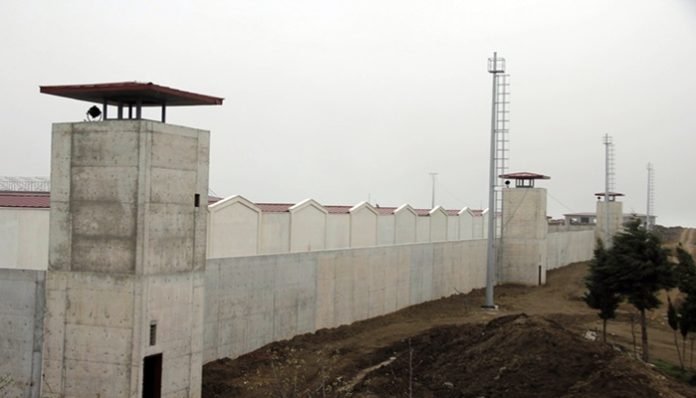Kübra Demir, an ailing vegetarian inmate in eastern Turkey who has been behind bars for three years on conviction of membership in the faith-based Gülen movement, has been given an unspecified disciplinary punishment by the prison administration for storing olives in her ward.
Demir, who has been struggling with the limited food options suitable for her dietary needs, has been relying on items she can purchase from the prison canteen. She was given a disciplinary punishment after guards found olives in a pickle jar in a routine ward inspection.
Her husband, Halil Demir, emphasized that prison authorities are obligated to meet the nutritional needs of every inmate. “She was punished simply because the container was deemed inappropriate. She used the jar because it was sturdier. How is what the prison authority did not considered malicious?” he said.
Demir had a hysterectomy before her imprisonment in 2021. Despite expert recommendations for daily medication to prevent osteoporosis after the surgery, prison authorities denied her the prescribed medicine.
“Her condition is deteriorating; her teeth are falling out, she moves slowly and doesn’t even want to go outside during yard time. She told me she just wants to sleep all the time,” Halil Demir said.
Prisons across the country are grappling with overcrowding and persistent issues related to inmate nutrition. The subpar quality of food and the limited options for those with dietary restrictions exacerbate these challenges. Inmates attempting to supplement their diets with personal items often face arbitrary punishments from prison authorities.
Halil Demir also highlighted ongoing issues from previous incarcerations in prisons in Hatay and İzmir, where his wife faced similar food-related problems. “During transfers, her personal belongings were left behind, and the essential items we sent were withheld,” he said.
Doğan was arrested in the aftermath of a 2016 coup attempt and sentenced to over six years in prison on December 24, 2021 due to her alleged affiliation with the Gülen movement based on witness testimony and having installed the ByLock messaging app.
ByLock, once widely available online, has been considered a secret tool of communication among supporters of the Gülen movement since the coup attempt on July 15, 2016, despite the lack of any evidence that ByLock messages were related to the abortive putsch.
Turkish President Recep Tayyip Erdoğan has been targeting followers of the Gülen movement since the corruption investigations in 2013, which implicated then-prime minister Erdoğan, his family members and his inner circle.
Dismissing the investigations as a Gülenist coup and conspiracy against his government, Erdoğan designated the movement as a terrorist organization and began to target its members. He intensified the crackdown on the movement following the abortive putsch in 2016 that he accused Gülen of masterminding. Gülen and the movement strongly deny involvement in the coup attempt or any terrorist activity.
Although victims of mistreatment in Turkey’s prisons can include people detained or imprisoned on any grounds, several documents in recent years have indicated that the abuses are more pervasive and systematic when it comes to people imprisoned on political grounds such as their alleged ties to political and civil networks not approved of by the government.















